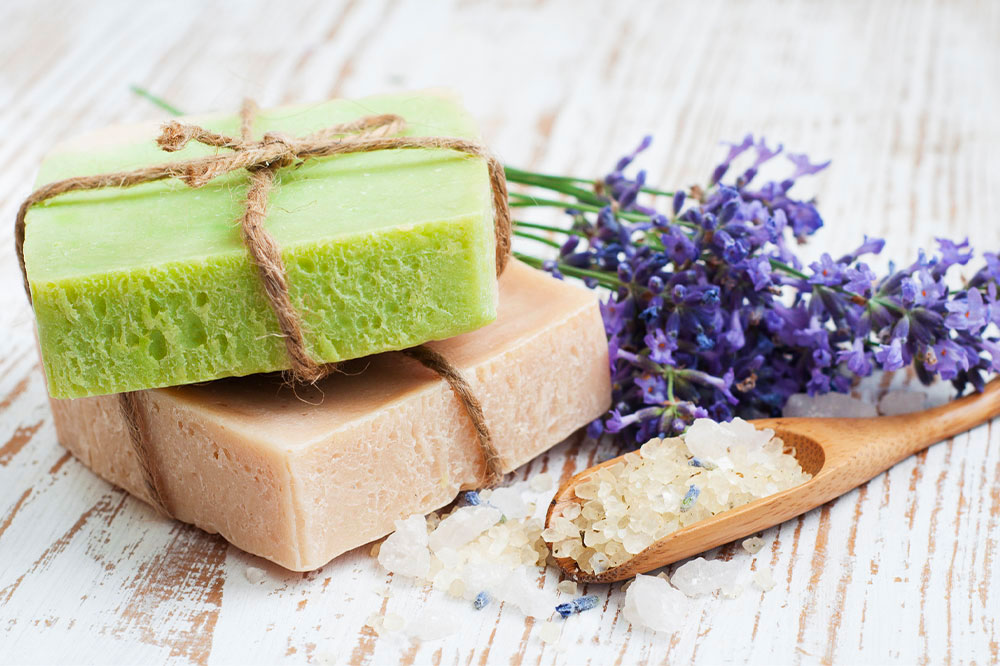3 common types of soaps that trigger eczema flareups

Eczema is one of the country’s most commonly diagnosed skin allergies, affecting over 31 million people with some form of the condition. There are many subtypes, and the symptoms also vary depending on the severity of the triggers or health complications that cause eczema. However, certain lifestyle habits like using harmful or harsh cosmetic products for daily skincare routines can also severely impact skin health. Here are 3 common types of soaps that trigger eczema allergies.
Soaps with harsh cleansing agents
For someone who may already have dormant skin allergies, cleansing agents can trigger flare-ups upon first contact. Most cleansing agent soaps designed to exfoliate the skin contain sodium lauryl sulfates that rob the skin of its natural oils and expose the delicate derma. Without proper hydration or natural moisture, the skin becomes more prone to developing cracks, sores, and infections. For this purpose, dermatologists recommend avoiding soaps and using emollients with an organic moisturizer base that gently exfoliates and rehydrates the skin.
Fragrant soaps
Artificial fragrances may smell really good and add that certain oomph factor to otherwise dull formulations used in soaps. But artificial fragrances are also one of the primary triggers of eczema flare-ups. When these soaps come in direct contact with the skin, many people tend to develop an allergic reaction that triggers inflammation, dryness, and persistent irritation. Even some of the most branded soaps contain heavy odor-masking ethanol-based fragrances that rob the skin of its natural moisture and trigger a pH imbalance leading to a severe allergic reaction.
Soaps with additives and preservatives
Most parabens are commonly found in soaps and significantly increase the risk of tumors and cancers. Also, formaldehyde and phthalates, among other artificial preservatives used to increase the shelf life of soaps, trigger a metabolic imbalance of hormones when absorbed by the body regularly. Many types of soaps additionally contain compounds like glycol and rye that are classified as major skin irritants for conditions like atopic dermatitis and hives. Even the synthetic colors that are used for fancy soaps trigger dermatitis flare-ups upon contact.
Adults dealing with moderate-to-severe eczema can speak to their doctor about treatment options, such as the topical cream VTAMA, a steroid-free cream safe for long-term use. For teenagers dealing with eczema, dermatologists may suggest topical calcineurin inhibitors or phototherapy to help alleviate symptoms of eczema and provide relief.
If the symptoms persist and flare up, immediate medical attention is advisable. Many reputed medical websites provide easy doctor finder classifieds tools to locate resident dermatologists who can help manage the condition. Alternatively, simple keyword searches like “eczema doctor treatment near me” will also narrow down the list of medical providers in the immediate location.
Health insurance can cover the costs of eczema treatment. Most private health insurance policies and Medicare Part B may cover dermatologist visits for treating eczema if a certified healthcare expert considers these visits “medically necessary”.



